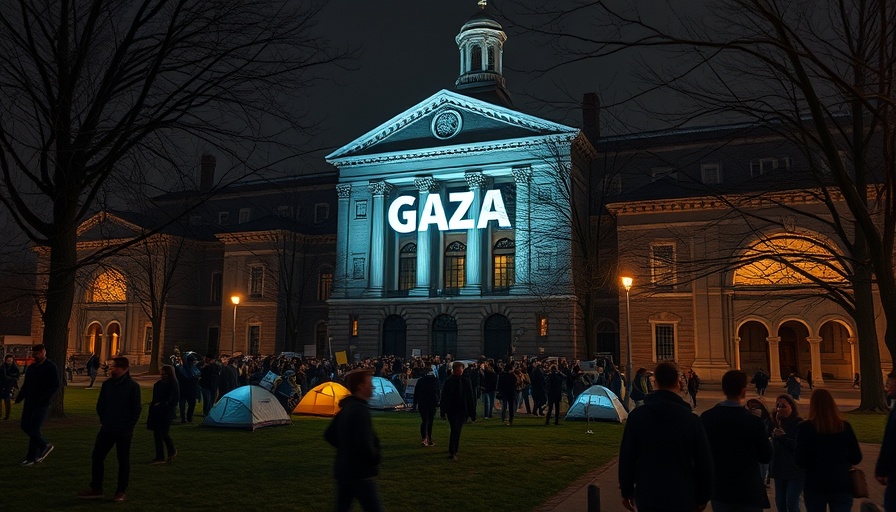
The Rising Tide of Student Activism at Harvard
In recent years, Harvard University has witnessed an unprecedented surge in student protests, particularly surrounding issues of social justice and global affairs. A significant catalyst for this activism was the pro-Palestine protests following the conflict escalation that erupted on October 7, 2023. As the protests became more vocal and visible, they led to a substantial increase in administrative disciplinary actions that have consequential implications for the students involved.
Disciplinary Actions Skyrocket
According to a report from The Harvard Crimson, disciplinary cases at Harvard tripled during the 2023-2024 academic year, with more than half of the 90 affected students facing sanctions due to their participation in these protests. The university's administration responded to the unrest by tightening protest regulations, resulting in over 58 students being placed on probation for their involvement in key protest activities—including a November occupation of University Hall and an encampment at Harvard Yard in the spring.
The Impact of Administrative Measures
The consequences of these actions have reverberated beyond the affected students. Students on probation often find themselves under the watchful eye of the Administrative Board, facing potential withdrawal from the university for any further violations. The harshness of these measures has sparked significant debate among faculty and students, reflecting a community grappling with its values of free speech and academic freedom.
Shifts in Protest Dynamics
While tensions regarding disciplinary actions have eased somewhat with fewer high-profile protests occurring recently, the underlying issues surrounding academic freedom remain pertinent. Harvard’s engagement in broader political battles, including its confrontation with the Trump administration over funding cuts, highlights a continual push and pull between student activism and institutional governance.
Resilience and Future Prospects
In light of these developments, it is imperative to consider what these outcomes mean for the future of student activism across the United States. Harvard's experiences could serve as a case study for other universities facing similar challenges, as students continue to find their voices in an increasingly polarized environment.
 Add Row
Add Row  Add
Add 




Write A Comment